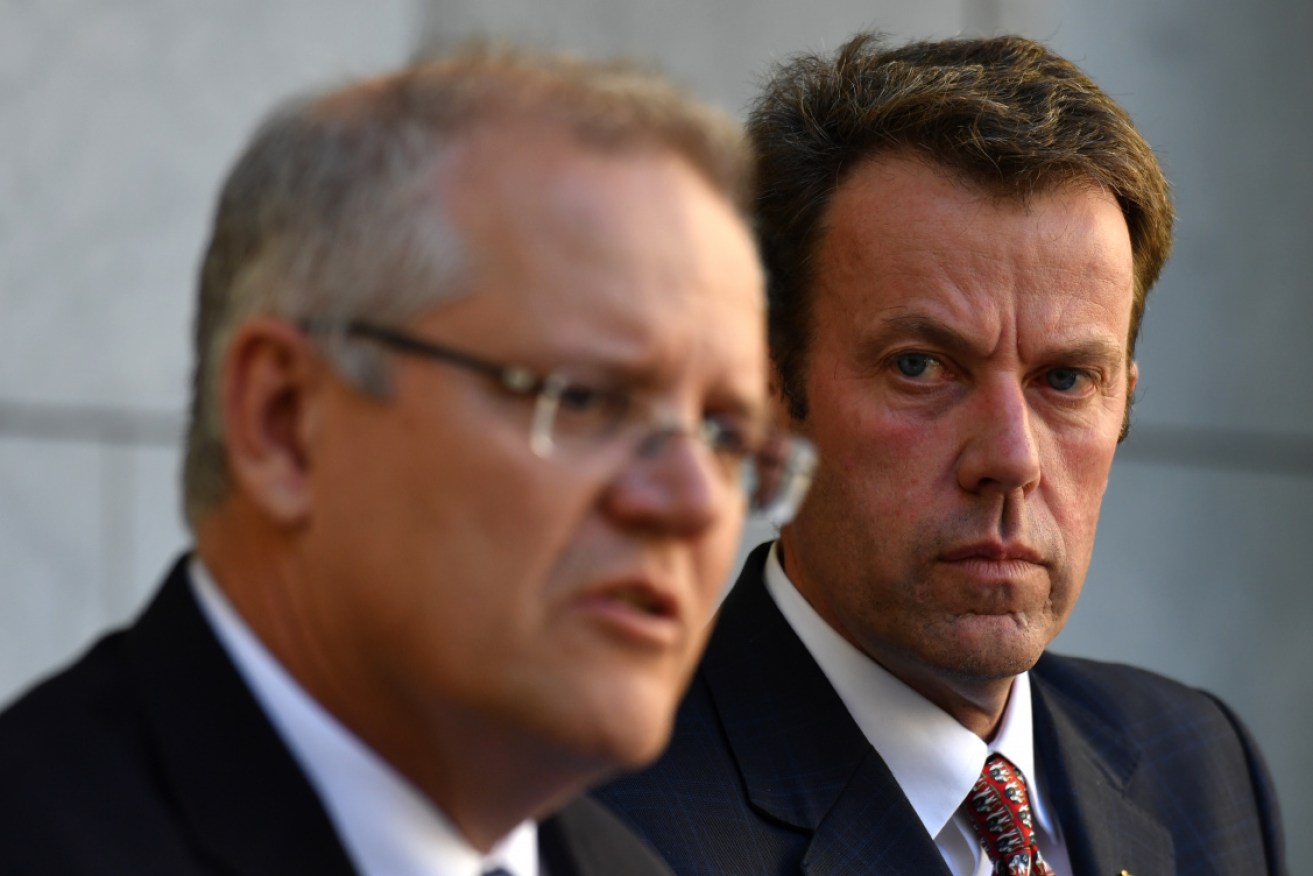Higher fees for arts degrees: Why does the government have it in for the humanities?


Education minister Dan Tehan (right) has delivered the latest blow in the Coaliton government's war against the humanities. Photo: AAP
The Australian government has a problem with the humanities.
That was clear before they even took office, when Jamie Briggs publicly mocked a range of ARC projects. (Two of his four examples were in philosophy. Philosophy survived; Briggs did not.)
It was clearer still when then-Minister for Education Simon Birmingham vetoed ARC funding for a range of humanities projects, and poured incredulous scorn on the work of those researchers.

So it’s hard not to see current Minister for Education Dan Tehan’s announcement that the government would be moving humanities degrees into the same fee band as commerce and law – more than doubling the cost of a Bachelor of Arts – in that hostile context.
Of course, this isn’t being sold as an anti-humanities move, but as a way of channelling students into ‘job-ready’ degrees like teaching, nursing, and clinical psychology.
The obvious rejoinder here is that humanities graduates have both good early-career employment outcomes (similar to maths and science graduates, whose tuition fees are being reduced) and long-term earnings.

The Coalition government has a history of hostility towards the humanities. Photo: Getty
They’re also equipped with critical reasoning skills they’ll need for their entire careers. A school leaver in 2020 will likely be working into the 2070s. We have no idea what vocational skills they’ll need down the track, but clear thinking and cultural literacy will always matter.
These well-meaning responses, though, play into the hands of a worldview that sees education merely as a means to getting a job. It’s a reductionist game which those who defend the value of the humanities should be very careful about playing.
It’s not clear the government is playing that game as well as it thinks, either.
Some years ago I had a job that involved working on recommendations for the coming year’s tuition fees for international students. What we absolutely did not want to do was to compete with other institutions on price.
There’s a very specific reason for that. According to marketing folks, education is a “credence good,” the sort of product where you can’t tell how well it’s worked even after you’ve consumed it. Think vitamins, or toothpaste.
How do you signal that you’re selling a quality product if your buyer can’t tell for themselves? Easy: price. If it’s expensive, it must be good, right?
This is lost on policy makers who assume students will choose the cheapest and quickest ticket of entry to their desired career. In 2010, the UK government allowed universities to set their own tuition fees up to a maximum of £9,000. The government was then shocked – shocked! – when the universities rushed to charge the maximum allowed. They’d expected institutions would price competitively, forgetting that nobody wants to go on the job market with a degree from a “cheap” university.
So the Australian government’s new fee structure does not, in fact, signal that humanities are a bad investment (which, again, they aren’t). Nor does it make a humanities degree undesirable, even if that is what the government is trying to do. After all, Tehan has effectively just told the market that a BA is as valuable as a law degree.
But it would be silly to assume that these changes won’t put students off humanities at all. Instead, they split students into two camps: those paying less for a credential that will get them into jobs like teaching and nursing, and those who can pay more for the ‘indulgence’ of a non-vocational degree.
It calls back to a view of university as a place where an elite get a generalist education, while everyone else is relegated to cheaper training for specific jobs.
That would indeed be a disaster for the humanities – not because it would starve us of students, but because it would re-homogenise who studies them. It would turn the humanities into a gated community for people whose parents can buy them the time to study Beowulf or learn formal logic.
This would be a return to a past that we’re still fitfully trying to escape. My own field, philosophy, is disproportionately male, largely middle-class, and overwhelmingly white. (I’m basically the philosopher from Central Casting, just without the tweed jacket and leather elbow patches.) This is a situation we need to change from the ground up.
One of the greatest privileges of academic life is teaching first-in-family students for whom a university degree is not a default expectation since birth but something genuinely transformative. If we want our universities to be engines of cultural, economic and moral progress instead of machines for reproducing the status quo, we need drastically more diverse student bodies, not less.
Perhaps that’s the real motivation for these fee changes. Dan Tehan BA (Hons) and his associates don’t want to destroy the humanities. They just want to keep them to themselves.
Patrick Stokes is associate professor of philosophy at Deakin University and a Melbourne-based writer and broadcaster.








